-
Lawmakers, scientists question FBI’s investigation, conclusion in 2001 anthrax attacks

Twelve years after the fall 2001 anthrax attacks, and six years after the 2007 FBI’s determination that Bruce Ivins, a top government anthrax researcher at the U.S. Army Medical Research Institute of Infectious Diseases (USAMRIID), was the perpetrator of the attacks (Ivins died in 2008 of apparent suicide), lawmakers and USAMRIID scientists insist that the FBI’s conclusions are not supported by scientific evidence – indeed, that some basic scientific facts make the Bureau’s conclusions untenable.
-
-
U.S. nuclear facilities vulnerable to terrorist attack: study
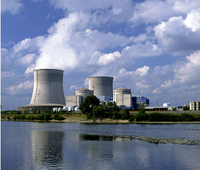
Some U.S. nuclear facilities are inadequately protected against theft of weapons-grade materials and sabotage by terrorists. Terrorist attacks on vulnerable nuclear facilities could trigger a meltdown or lead to a diversion of bomb-grade uranium. The danger is far from hypothetical since the 9/11 hijackers are known to have considered flying a passenger jet into a U.S. nuclear reactor before they settled on the World Trade Center as their main terror target.
-
-
Scientists develop safe method for research on deadly flu viruses
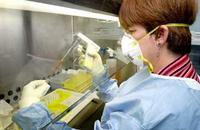
In 2012, scientists around the world agreed to a worldwide, yearlong voluntary moratorium on research into the deadly H5N1 bird flu. The ban came after several scientific teams successfully altered the H5N1 viral genome to enable airborne transmission of the bird flu between ferrets — mammals considered a good research model for humans. The public health concern was that altered H5N1 could escape the lab, infect and spread among humans, producing a global pandemic. There was also concern that terrorists would use the altered H5N1 viral genome in large-scale bioterror attacks. Researchers have now been able to turn molecules in human lung cells into viral scissors that cut H5N1 bird flu and similar bugs into pieces. This dismantling of the viral genome in human lung cells will ensure safe research on deadly strains of influenza.
-
-
Small modular reactors (SMEs) a “poor bet” to revive U.S. nuclear renaissance: report
A shift to small modular reactors (SMRs) is unlikely to breathe new life into the troubled U.S. nuclear power industry, since SMRs will likely require tens of billions of dollars in federal subsidies or government purchase orders, create new reliability vulnerabilities, as well as concerns in relation to both safety and proliferation, according a report issued last week.
-
-
U.S. military trains to support civil authorities during domestic CBRN incident
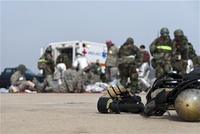
Vibrant Response 13-2 exercise, conducted by U.S. Northern Command and led by U.S. Army North (Fifth Army), is an annual event and is the country’s largest CBRN exercise. The training exercise is used to evaluate a military unit’s operational and tactical ability to support civil authorities during domestic incidents involving chemical, biological, radiological, or nuclear weapons.
-
-
Molecule “scanner” uses terahertz radiation to identify single molecules
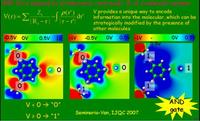
Molecules could soon be “scanned” in a fashion similar to imaging screenings at airports, thanks to the world’s smallest terahertz detector, developed by University of Pittsburgh physicists. The scanner has the ability chemically to identify single molecules using terahertz radiation — a range of light far below what the eye can detect.
-
-
Lawmakers criticize FDA, CDC for Cyclospora outbreak foot-dragging
Lawmakers want to know why it has taken so long for food-safety authorities to respond to the cyclospora outbreak which, so far, has sickened at least 418 people in sixteen states. They also want to know why the FDA and CDC have been tight-lipped about the specific products carrying the parasite — health authorities in Nebraska and Iowa have pointed to bagged salad containing romaine and iceberg lettuce as well as carrots and cabbage as the source – and who is the manufacturer of the contaminated products.
-
-
Nuclear academics, professionals meet for 6th annual ATR NSUF Users Week
The sixth annual Advanced Test Reactor National Scientific User Facility (ATR NSUF) Users Week was held 10-14 June at University Place, the satellite campus for Idaho State University and University of Idaho in Idaho Falls. This nuclear research-themed week was the user facility’s opportunity to update the user community on nuclear energy issues and tools, conduct a research forum where users can come and present their research, run specialized workshops, and build collaboration among academic, industry and government institutions.
-
-
Top-secret super-secure vault declassified
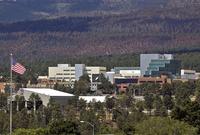
Down a remote canyon near Los Alamos National Laboratory lies a facility known as the Tunnel Vault. Once one of the most secret and secure locations in the United States, it is the original post-Second World War nuclear stockpile storage area. Built between 1948 and 1949, the facility has a formidable security perimeter, a hardened guard tower — complete with gun ports and bulletproof glass — and a series of gates and doors that lead to a 230-foot long concrete tunnel that goes straight into the canyon wall.
-
-
Well water contaminants highest near natural gas drilling: study
A new study of 100 private water wells in and near the Barnett Shale showed elevated levels of potential contaminants such as arsenic and selenium closest to natural gas extraction sites. Researchers believe the increased presence of metals could be due to a variety of factors including: industrial accidents such as faulty gas well casings; mechanical vibrations from natural gas drilling activity disturbing particles in neglected water well equipment; or the lowering of water tables through drought or the removal of water used for the hydraulic fracturing process. Any of these scenarios could release dangerous compounds into shallow groundwater.
-
-
North Carolina’s biothreat warning system receives funding
The North Carolina Bio-Preparedness Collaborative (NCB-Prepared), a project to develop an early warning system to detect biothreats, has received $3 million in funding. The goal of NCB-Prepared project is to develop a statewide system that can detect and alert health officials and first responders within hours of an outbreak indicating a bioterror attack, contagious disease or illness, food-borne illness, and other biothreats.
-
-
Specialized gas detection helps prevent nuclear weapons proliferation
Researchers aim to design a system capable of sensing, from among the loud signals of a lot of gases, the weak signals from specific gases which are signs of nuclear weapons proliferation. The researchers believe their gas correlation technique will prove ideal for a simple, inexpensive sensor to monitor those few illusive gases. This could change how the nation thinks about monitoring the spread of nuclear weapons. Instead of single-point measurements taken with expensive sensors deployed after someone suspects a problem, 24/7 continuous monitoring could find leaks early.
-
-
Lawmakers, citing shortcomings, threaten funding for chemical plant safety program
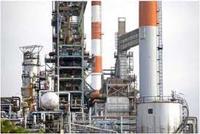
Heads of three congressional panels urge DHS secretary Janet Napolitano to take to correct shortcomings in the Chemical Facilities Anti-Terrorism Standards (CFATS) program. “As the authorizers and appropriators of this program, we write to you to express serious reservations about continuing to extend CFATS funding without evidence of substantial programmatic improvement,” the three chairmen write in their letter to Napolitano. The lawmakers pointed to flaws in the program’s risk evaluation system, compliance hurdles, implementation delays, and the failure of the program to identify vulnerable facilities.
-
-
U.S., South Korea teaming up for bioterrorism exercise
Officials from the United States and South Korea were in Seoul, South Korea last month for the third annual joint anti-bioterrorism exercise in Seoul. Around eighty U.S. officials and between 120 and 130 South Korean military officials participated in the tabletop exercise.
-
-
Japan to restart nuclear power plants
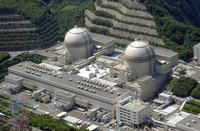
Japan’s fifty nuclear power plants were taken off-line in the wake of the 2011 Fukushima nuclear disaster, but the government Prime Minister Shinzo Abe, which took office in December, said it was planning to restart Japan’s nuclear power generation program.
-
More headlines
The long view
Keeping the Lights on with Nuclear Waste: Radiochemistry Transforms Nuclear Waste into Strategic Materials
How UNLV radiochemistry is pioneering the future of energy in the Southwest by salvaging strategic materials from nuclear dumps –and making it safe.
Model Predicts Long-Term Effects of Nuclear Waste on Underground Disposal Systems
The simulations matched results from an underground lab experiment in Switzerland, suggesting modeling could be used to validate the safety of nuclear disposal sites.
